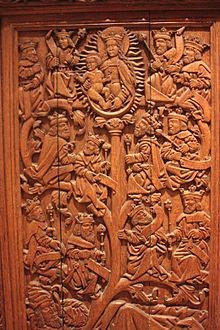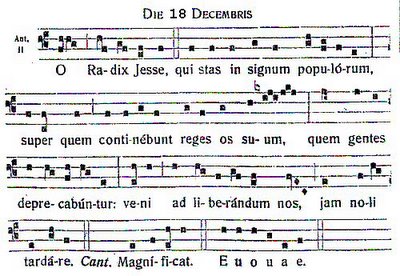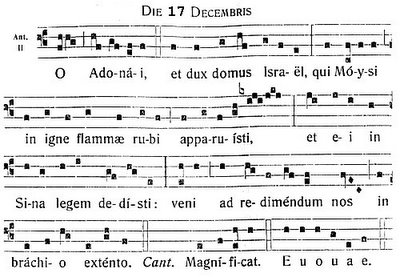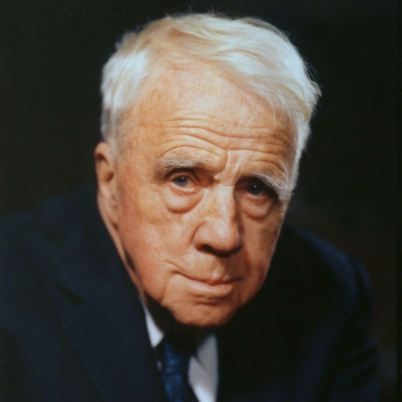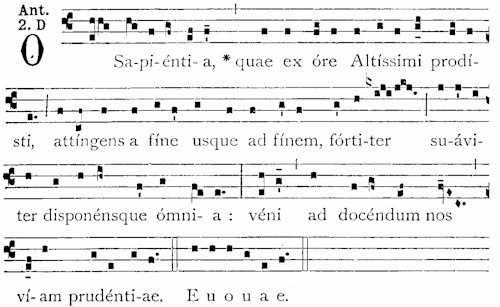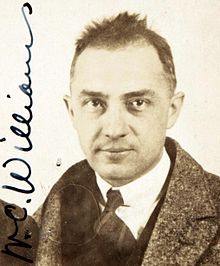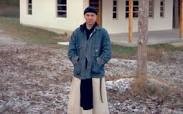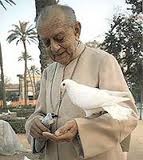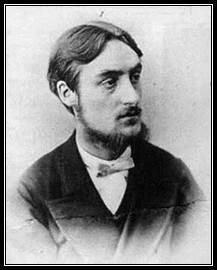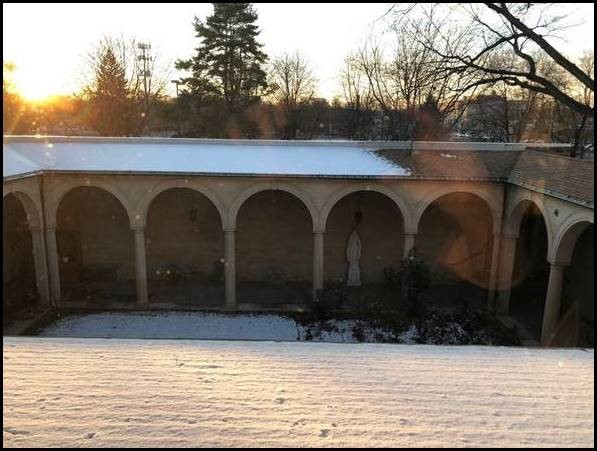Wednesday, December 19
Today’s Antiphon, “O Root of Jesse,” grew out of two Biblical texts recounting the genealogy of Jesus (Luke 3:23 and Matthew 1:1). Both versions locate the new born baby as Jesus, a human being, more than as The Christ, the Divine Lord of the all reality. The human Jesus had ancestors who were heroes and ancestors who were criminals (just like the long stories of ancestors for each reader of this post). That, I take it, is the teaching embedded in the visual depictions of the “Jesse Tree.” When teaching courses in the history of U.S. technological practice, I sometimes began a semester inviting students to write one story about one of their ancestors. I’ve forgotten which student wrote about a long-ago great (great-great?) grandmother who lived with her husband on the then mostly unsettled shore of Big Bay de Noc at the northern edge of Lake Michigan. He had a habit, it was said, of taking his boat out on Big Bay in the night to visit and have sex with another woman. The student’s grandmother, one dark night, turned off all the lights so that her unfaithful husband got lost in the dark and, if I remember the story accurately, drowned.
Ancestries, if one traces back far enough, carry the nobility and the venality of human beings. So too with the tree of Jesse announced in Luke and Matthew to locate the new born Jesus deep within the human condition.
Our university has taken on the stillness of mostly empty parking lots as students and most faculty settling into a time for rest, naps, and kinship times. I’m getting ready to head out tomorrow afternoon to drive I-80 across northern Ohio to visit kinswomen of 45 years, Sisters of St Joseph who live mostly down the Ohio River from Pittsburgh – good cooking, even better story telling. These late Advent posts will keep on coming.
Have a blest day.
john sj
Today’s Post: O Antiphon #3 O Radix Jesse – O Root of Jesse
A 17th-century oak carving of the Tree of Jesse
from St Andrews Castle, Royal Scottish Museum
“O Root of Jesse’s,
Who stands as sign to the peoples
in whose presence rulers close their mouths
to whom the Gentiles send their prayers
come to set us free, hurry.”
To listen to the Antiphon sung in Gregorian Chant:
https://www.youtube.com/watch?v=l8Z3nwkExUQ
p.s. A note from Wikipedia for more background
Depictions of the Jesse Tree are based on a passage from the Book of Isaiah.
“And there shall come forth a rod out of the stem of Jesse, and a Branch shall grow out of his roots” (King James Version).
In the New Testament the lineage of Jesus is traced by two of the Gospel writers, Matthew in descending order, and Luke in ascending order. Luke’s Gospel’s description in chapter 3 begins with Jesus himself and is traced all the way back, via Nathan to David and then on to “Adam, which was [the son] of God.”. (Luke 3:23-38) Matthew’s Gospel opens with the words: “The book of the generation of Jesus Christ, the son of David, the son of Abraham.” (Matthew 1:1) With this beginning, Matthew shows the Abrahamic and royal descent, passing through David, but then through Solomon

